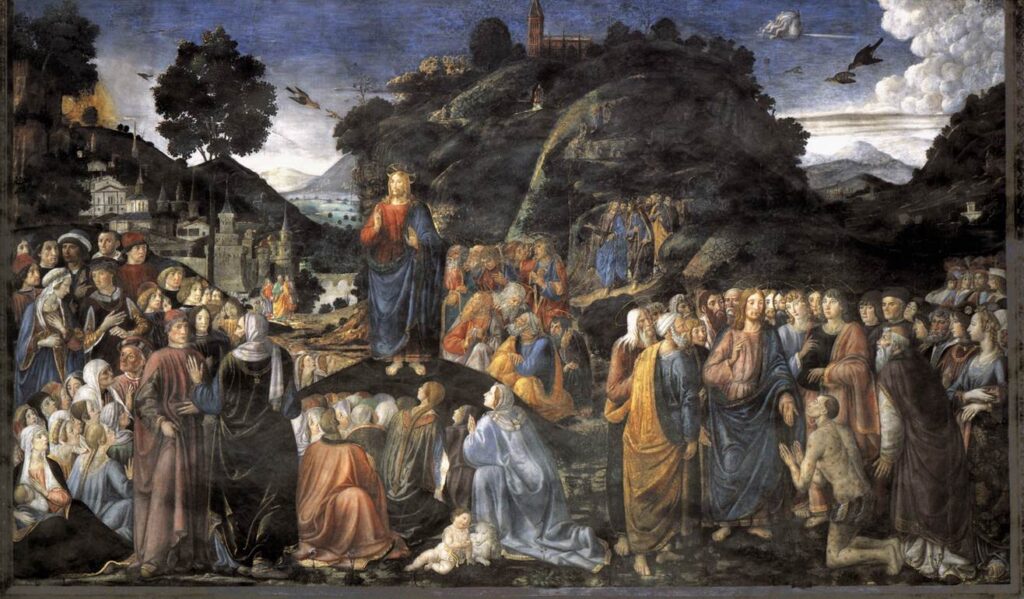As the years pass, I have learned that the most fervent fidelity to the Lord, at one stage in life, does not guarantee permanent fidelity. Devout couples, once on fire to begin their Catholic marriages, can disintegrate in bitter divorce. Priests, once exuberant to serve the Lord at their ordinations, can lose confidence in their vocations and leave the priesthood. Too many stories describe once prominent Catholics who left the Church for some other religion, or no religion at all.
These are large-scale dramatic examples of a reality that we all have likely seen on a smaller scale, and against which each of us must be on guard lest we, too, follow suit: that we can allow the light of faith to be diminished – or, worse, extinguished – in our souls as we wind along the pilgrimage of life.
How can we account for spiritual dissolution of any degree when a person once eagerly partook of the sacraments and the spiritual life? Shouldn’t all of those graces have preserved the soul safe for the rest of this life into eternal life? In the Sermon on the Mount, it appears that Jesus had in mind souls who would labor to remain faithful:
“Enter by the narrow gate; for the gate is wide and the way is easy that leads to destruction, and those who enter by it are many. For the gate is narrow and the way is hard, that leads to life, and those who find it are few.” (Matt 7:13-14)
It would seem, contrary to modern expectations, that Jesus predicts that few, rather than many, will be saved. This is not because He is a stingy miser selfishly keeping His kingdom for Himself and a small number of favored friends. It’s because we fallen human beings prefer the path of least resistance, which, our Lord warns us, is decidedly not the path to Him. The downward path seems easy since it offers tangible, material allurements of the world and the flesh that smother our spiritual inclinations.
Yet it leads to destruction, eternal death without God, who, mysteriously, does not compel anyone to choose the better path. Men and women choose it freely for themselves. Or not.
The way to salvation, by contrast, is narrow, opined St. Augustine, because men “do not put their true trust in the Lord when he cries, ‘Come to me, all you who labor, and I will give you rest. . . .For my yoke is easy and my burden light.’” Since only few will take up the Lord’s yoke, the gate is narrow; there is no need for a wide path to accommodate them.
Yet some people who at first enthusiastically assume the Lord’s yoke and zealously cover innumerable miles eventually struggle to keep their balance on such a hard road where the gate ahead seems to being narrowing, not broadening, with each forward step. They begin to sway and stumble. They grow discouraged and frustrated. They consider giving up. A portion of them do.
Why? Certain members of this group, as St. Jerome starkly put it, “after they have found the way of truth, caught by the pleasures of the world, desert midway.” Others resemble St. Peter walking on the water: buffeted by the trials of life, they take their eyes off the Lord as they walk. Peter sank; these fall off the road, turn around, and seek another road to travel instead.

Their plight issues a sobering warning to the few who labor to enter the narrow gate at life’s end. Navigating the hard road for 50, 60, 70, 80, 90 years is daunting and demanding, with daily and weekly repetition of the same actions necessary for success. If we are to complete the journey, we can’t do it alone. We will need God’s help, which comes in a virtue we rarely hear about but so deeply need: perseverance.
St. Thomas Aquinas teaches that since the virtues of faith, hope, and charity have as their goal the end of life, the virtue of perseverance, a derivative of fortitude, allows us to persist in those higher virtues. But perseverance as a virtue cannot succeed with human effort alone. It “needs not only habitual grace, but also the gratuitous help of God sustaining man in good until the end of life.”
The Angelic Doctor’s explanation of perseverance reminds us not only that faith is a gift that we did not deserve, but that remaining in God’s love is also an unmerited gift. We work out our salvation in fear and trembling in part because any day we are capable of turning away from God.
That rarely occurs as a sudden act of rebellion; it typically happens slowly – we skip prayers, yield to small temptations, elevate something worldly over divine prerogatives. Negative momentum gradually turns us away from God and into ourselves. Eventually the gift of faith God has given us becomes stale, brittle, insipid. Had we called upon the Lord, He would have answered. But we grew impatient and squandered His gift in the process.
The version of the morning offering prayer I memorized years ago includes a declaration of thanks to God “for calling me to the Catholic faith.” It concludes with seven petitions, the first being: “Grant me perseverance in living my Christian vocation.” More explicitly, especially in a secular age, it can run, “Grant me perseverance in living the faith you have given me until the end of my life.” Only with this virtue will we have the grace to enter the narrow gate. Lent is the perfect time to start praying for it.
*Image: Sermon on the Mount by Cosimo Rosselli, cc. 1481-1482 [Sistine Chapel, Rome]
You may also enjoy:
Fr. Paul D. Scalia’s Pray Like a Child
David G Bonagura, Jr.’s The Hope of Lent















